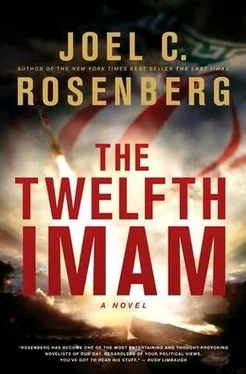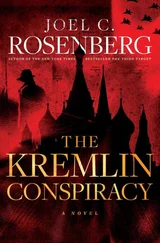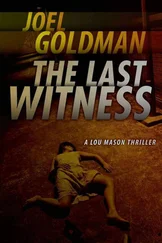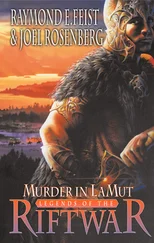David explained that he was leaving Germany for Iran that afternoon. He also explained that MDS had established a fund to help the survivors of the earthquake in Hamadan.
Esfahani was deeply moved and was astonished when David suggested the generous offer of compensation. He agreed immediately, but with one condition.
“What’s that?” David asked.
“Mr. Rashidi need not be burdened with this project, as honorable as it is,” Esfahani said. “I don’t think we should ask him to administer the fund. It would be too much. It would be a great honor to handle it myself.”
It never ceased to amaze David how well hard, cold cash worked in the world of intelligence. “That’s fine with me,” he said.
“I’ll have a bank account in Tehran set up by the end of the day,” Esfahani offered, “then get you the SWIFT code so you can wire the money.”
“Great,” David said. “As for the gifts you asked me to pick up, where do you want me to bring them, and how do I get them into the country without drawing attention to myself?”
“You have twenty already?” Esfahani asked in surprise.
“You said it was important.”
“Listen, you mustn’t wait to come,” Esfahani said. “Mina will meet you at baggage claim in Tehran. She’ll clear you through customs and take you to the person who should receive the gifts. I’ll call her right now.”

En Route to Tehran
Najjar knew nothing about the earthquake.
To let the baby sleep, he and Sheyda didn’t have the radio on as they drove east along Route 48 toward Tehran. Instead, Sheyda talked nonstop about what had happened to her mother and her while Najjar had been out that night.
She began by explaining they had forced themselves to do their evening prayers, even though they were just going through the motions. With everything that had happened, she said, they had lost all faith in Allah and all faith in Islam. Then Jesus appeared to them in the living room, scaring them half to death. They compared notes with Najjar on how Jesus looked, what He sounded like, and what He told them, and it was amazing how similar their experiences had been.
“The first thing He said was, ‘Fear not, little children,’” Sheyda recalled. “Then he said, ‘I have loved you with an everlasting love. Therefore, I have drawn you with lovingkindness. I know the plans I have for you-plans for good, not for evil; plans to give you a future and a hope. Come and follow Me.’”
“What did you say?” Najjar asked.
“What could I say?” Sheyda replied. “I said yes!”
“Weren’t you scared?”
“Jesus told me not to be.”
“Weren’t you worried about what I would say?”
“A little, but what could I do? I suddenly had a mere glimpse of just how much Jesus loved me, and I couldn’t resist.”
Najjar turned to his mother-in-law. “What about you? Your husband was awaiting the Mahdi.”
“So was I,” Farah replied.
“Then what did you say to Jesus?”
“I said yes!”
“But why?”
“Why did you?” she asked.
Najjar thought about that. “I knew He was telling me the truth.”
“So did I,” Farah said. “I knew it in my soul.”
“Why do you think He came to us, of all people?”
“I don’t know,” Sheyda said. “But Jesus did say, ‘You did not choose Me, but I chose you and appointed you to go and bear fruit, and that your fruit would remain, so that whatever you ask of the Father in My name He may give to you.’”
“I asked, ‘What should we do?’” Farah said, smiling at the memory and savoring each precious word. “He said, ‘Be strong and very courageous. Be careful to do all that I command you. My words shall not depart from your mouth, but you shall meditate on them day and night, so that you may carefully follow them; for then you will make your way prosperous, and then you will have success. Do not tremble or be dismayed, for the Lord your God is with you wherever you go.’”
For the next half hour, they discussed the meaning of these words. Was Jesus asking them to speak publicly about what they had seen and heard? They knew all too well the risks involved. Telling anyone in Iran that they had left Islam and become followers of Jesus Christ as the One True God-the only way to heaven-would lead to their arrest, torture, and possibly execution. Of this they had no doubt. Yet Farah reminded them that Jesus had told them not to be afraid but to follow His words carefully.
“We need a Bible,” Sheyda said.
Najjar agreed but wondered aloud where they were likely to find one-in Tehran of all places. The two women had no idea, but they immediately bowed their heads and asked the Lord to give them a Bible, in Farsi if possible. Then they concluded by saying, “We ask these things, O Father, in the name of Jesus Christ, our Savior and our great God and King.” They half expected a Bible-or Jesus Himself-to appear immediately, but nothing happened. Still, they all had peace that He would provide for them soon.
For now, however, Najjar had a somewhat-vexing question.
“What are we to believe about the Twelfth Imam?” he asked. “I have seen him myself. I have met him at least twice. He told me the future. He told me that I would marry you, Sheyda, when there was absolutely no prospect of that happening. He told me other things that have come true. How could the Mahdi tell the future if he is not the messiah? How could the Mahdi do miracles if he is not from God? I’m not saying I don’t believe Jesus. I do. But I admit I’m confused, and if we were ever to say any of this publicly…”
“You mean, when we speak of this publicly,” Sheyda gently corrected him.
Najjar was amazed by how deep his wife’s faith had grown so quickly. “Right- when we speak of this publicly, people will ask me about the Twelfth Imam, and I don’t know how to respond.”
“Jesus told us something about that,” Sheyda said.
“What do you mean?” Najjar asked.
“He said something about that,” Sheyda repeated. “What was that, Mother? You wrote it down, right?”
“I did,” Farah said, pulling a small notepad out of her pocketbook and passing it from the backseat, where she was sitting beside the baby, to her daughter, who was sitting in the front beside Najjar. “There, on the third page.”
Sheyda scanned her mother’s scribblings to find the line she was thinking of. “That’s right. Jesus told us to read Exodus chapter 7 and Deuteronomy chapter 13.”
“What are those?” Najjar asked.
“We’re not sure yet,” Sheyda admitted. “We’re guessing they’re in the Bible.”
The three continued talking about their encounters with Jesus until they reached the outskirts of Tehran. Unsure where the Lord wanted them to go, how long they were supposed to be there, or what they were supposed to do, they prayed for wisdom, then pulled into a small motel near the Mehrabad Airport. Sheyda needed to nurse the baby. Najjar decided to use the time to shower. Farah needed to rest a bit.
But no sooner had Najjar stepped into the hot shower and begun thanking the Lord for His kindness and His mercies than he heard Sheyda cry out. He scrambled to turn off the water, wrapped himself in a towel, and bolted out of the washroom. He found his wife sitting in a chair, feeding the baby, and properly covered, but she had turned on the television to discover news of an earthquake that had struck their city not long after they had left. The images were shocking. Entire buildings and neighborhoods had been flattened. Major bridges and highways had crumbled and collapsed like sand castles. Newscasters said the death toll had now risen past six thousand. Countless other people were wounded, and emergency workers were responding from all over northwestern Iran.
Читать дальше













